Growing eggplant from seed is a worthwhile and value-effective manner to experience fresh, homegrown produce proper out of your lawn. Eggplants thrive in warm climates and, with proper care, can produce a considerable harvest during the season. By starting from seed, gardeners have the gain of selecting from numerous eggplant sorts, ensuring the satisfactory health for his or her nearby developing situations and culinary choices.
Successful cultivation starts off with selecting extraordinary seeds, getting ready nutrient-wealthy soil, and keeping the right temperature for germination. Eggplant seedlings require warmth, constant moisture, and good enough sunlight to grow to be strong, healthful plants. Growing eggplant from seed is very simple way.
Choosing the Right Eggplant from Seeds
Selecting remarkable seeds is step one in a hit eggplant cultivation. Look for sickness-resistant and domestically tailored sorts to make sure better germination and increase. Popular alternatives consist of Black Beauty, Ichiban, and Rosa Bianca. Starting seeds indoors is usually recommended for an extended growing season and more potent seedlings. Growing eggplant from seed is very easy method.
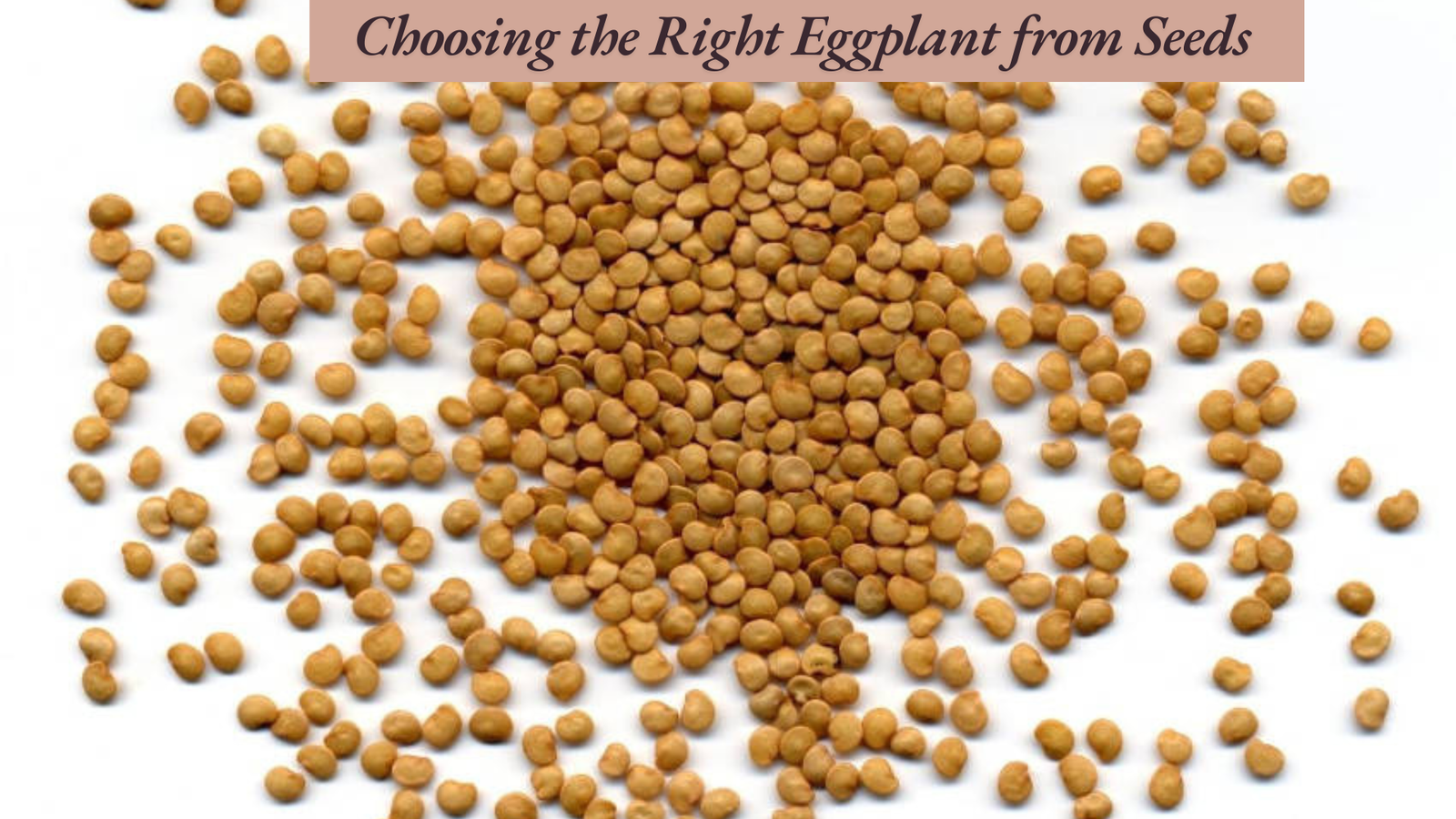
Growing eggplant from Seed-Starting Mix
Use good fertilizers to grow eggplant seeds. Eggplant seeds will grow well if you mix homemade fertilizer in the soil and soften the soil. Then, when you grow eggplant seeds, the plant will sprout very quickly. Make sure that the plants get good air and nutrition and do not keep the soil too wet. Then, the eggplant seeds will grow.
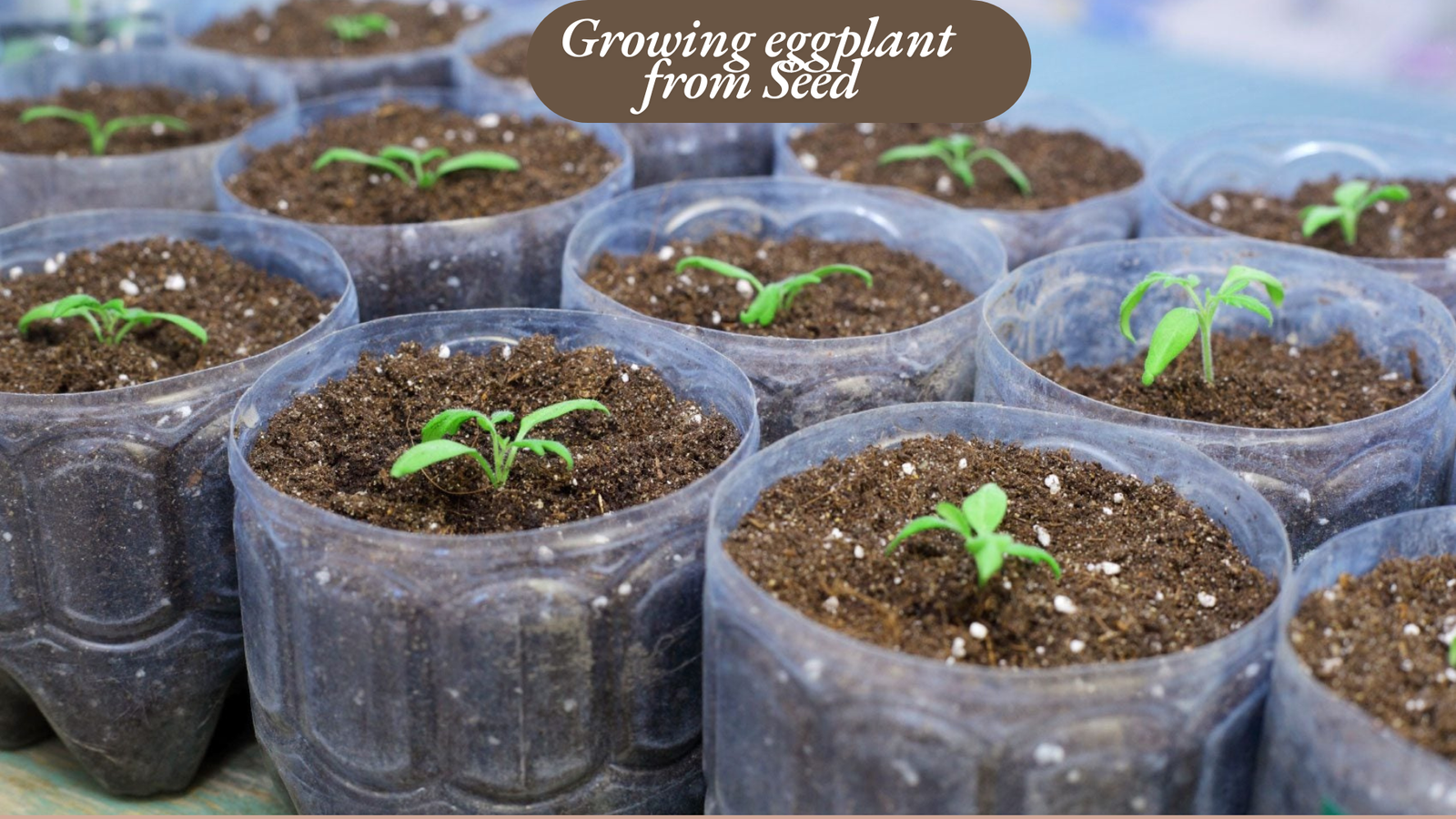
Planting Eggplant growing from Seeds Indoors
Starting eggplant seeds indoors is essential for a successful developing season, especially in areas with shorter summers. Eggplants require warm temperatures to germinate and grow, making indoor seed-beginning the fine method to make certain sturdy, healthful seedlings before transplanting them outside. The manner begins with deciding on a tremendous seed-starting mix that is mild, properly-draining, and nutrient-wealthy. Before growing eggplant seedlings from seeds, soften the soil well. Use good quality fertilizers in it, especially homemade compost. This will help the seedlings grow very well. When planting, plant the seeds one to 4 inches deep. Grow the seeds in tray bins and pots, retaining a distance of at least one to two inches among them in order that there may be no overcrowding. It is particularly critical to preserve the soil wet.
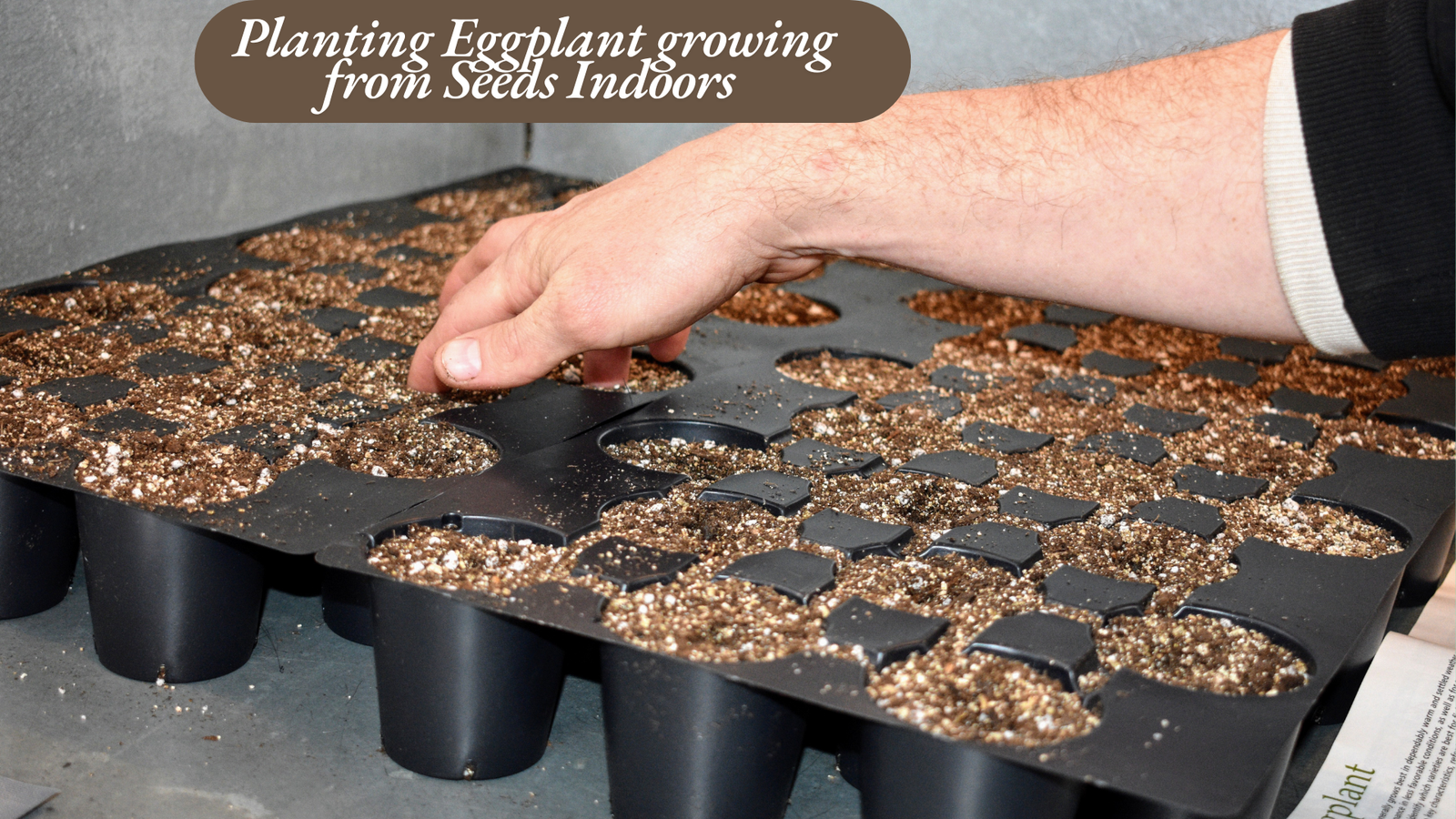
Caring for growing Eggplant from Seedlings
Once seedlings emerge, they need plenty of moisture to prevent leggings. Provide at least 12–sixteen hours of bright, oblique daylight or use grow lighting. Water continually, making sure the soil remains slightly wet but by no means waterlogged. When seedlings develop their first genuine leaves, they may be transplanted into large boxes.
Hardening Off Before Transplanting
Before shifting eggplant seedlings exterior, they want to be hardened off to alter to outside conditions. This method includes progressively exposing them to sunlight and outside temperatures for a week. Start with some hours in a sheltered spot, increasing publicity every day.
Transplanting Eggplants into the Garden
Eggplants thrive in warm soil and full solar, requiring at least 6–8 hours of direct daylight each day. Choose a nicely-draining, nutrient-wealthy location with soil temperatures above 60°F (sixteen° C). Space vegetation 18–24 inches apart to allow proper airflow and wholesome root improvement. Adding compost or elderly manure improves soil fertility.
Watering and Mulching for Healthy Growth
Consistent moisture is key to eggplant increase, however overwatering can lead to root rot. Water deeply once or twice per week, relying on climate conditions. Mulching around plant life helps keep soil moisture, modify temperature, and save you weeds.
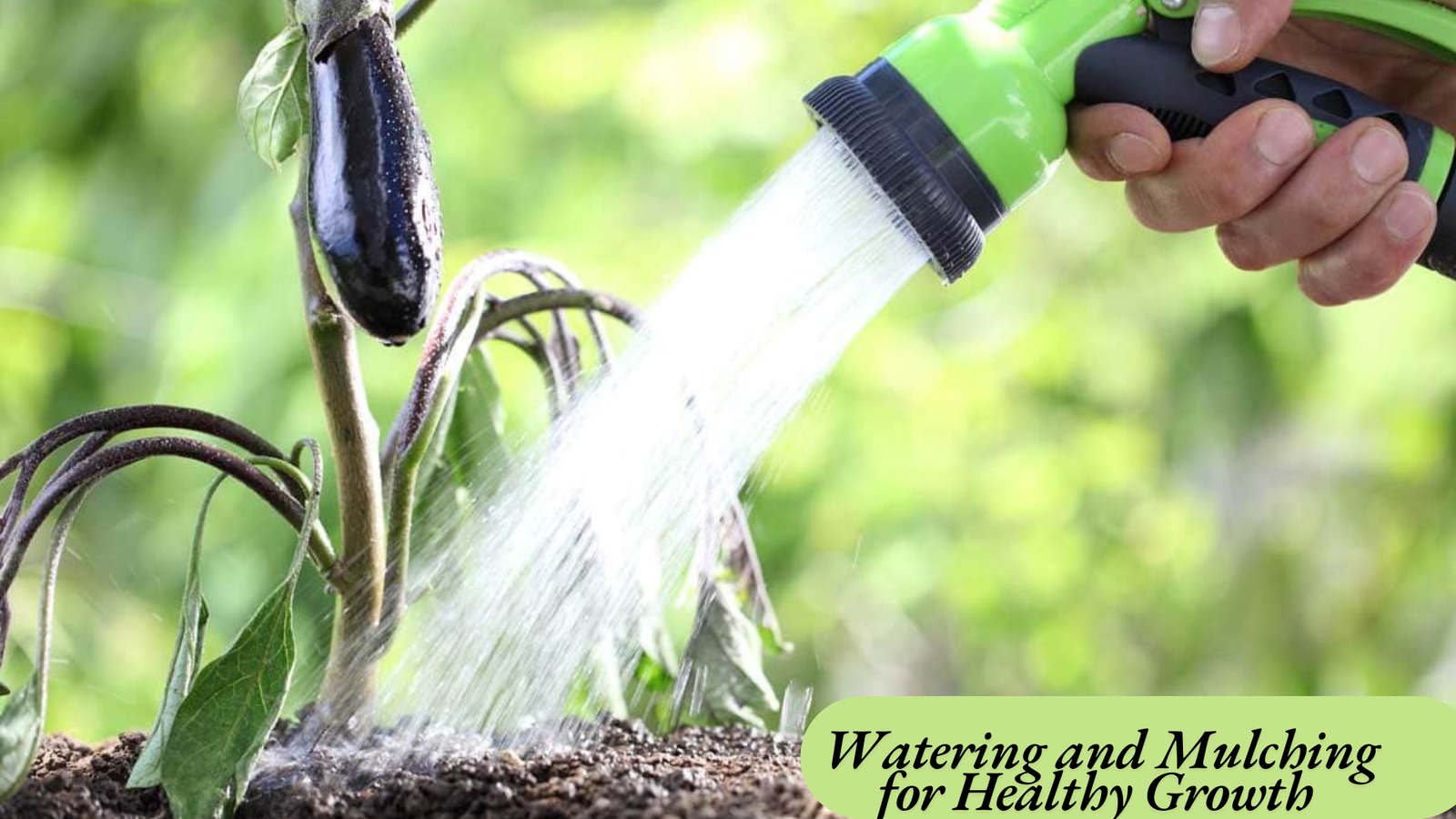
Supporting and Pruning Eggplant Plants
Eggplants gain from staking or caging to help their heavy fruit. Using garden stakes or tomato cages prevents branches from breaking underneath the burden of the harvest. Light pruning of lower leaves complements air circulation and decreases disorder risk.
Managing Pests and Diseases
You can eliminate the insects that grow on eggplant plants using home remedies. For example, spray the plants with coconut oil and soap, which will kill the insects. Rotating plants and preserving the lawn clean enables you to save you fungal diseases like powdery mold and bacterial wilt.
Harvesting Ripe Eggplants
Eggplants are harvested when they are fully grown, have smooth skin, and appear ripe. Ripe eggplants will appear solid black in color. Harvest eggplants on time. If eggplants aren’t harvested on time, they emerge as bitter and their taste isn’t always top. If you need the eggplant to flavor well, harvest it early. Use sharp scissors or pruning shears to cut the fruit, leaving a quick stem connected.
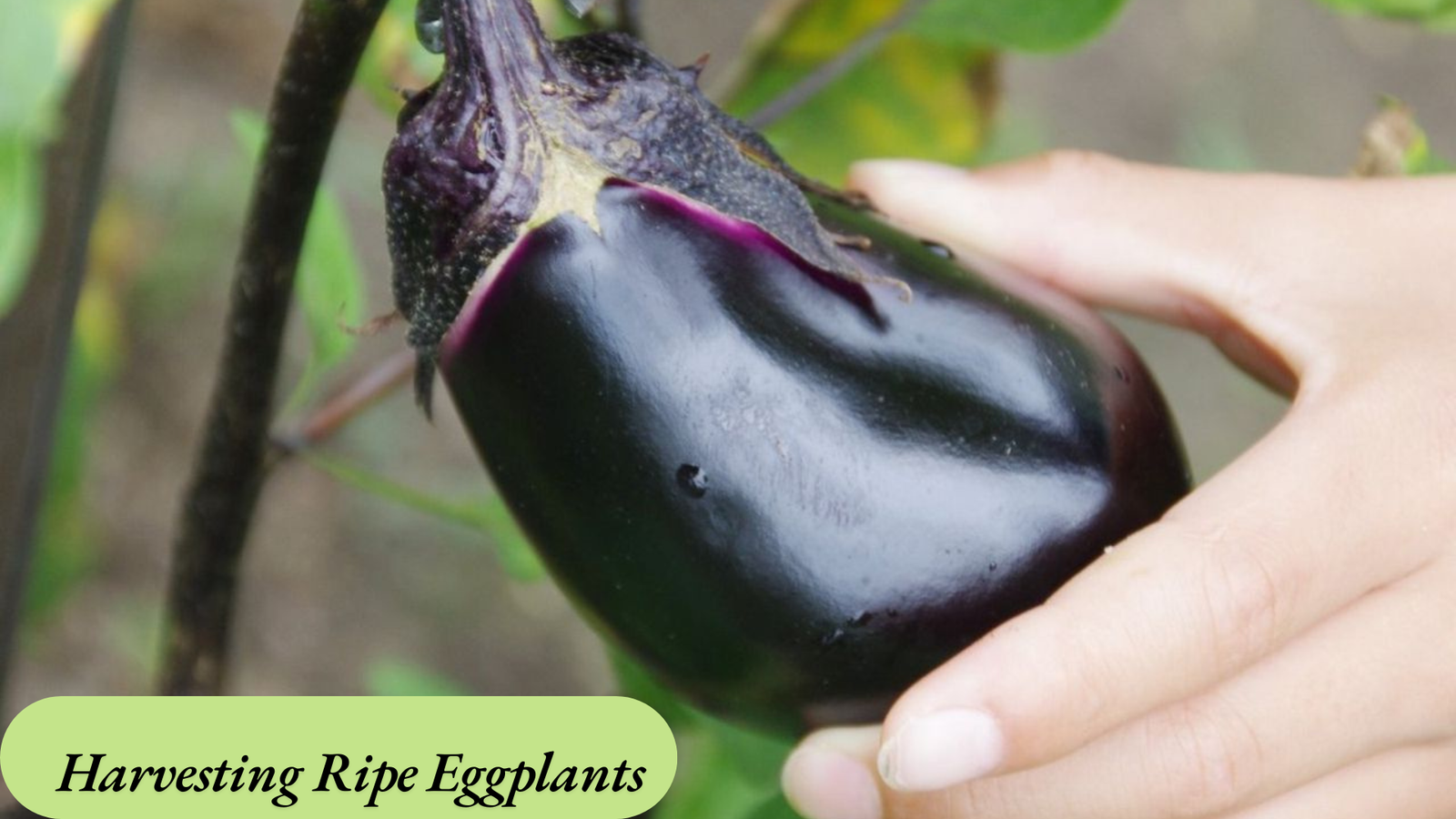
Enjoying Your Eggplant Harvest
Eggplants have a soft texture and are used in curry pastes and various recipes. By following proper growing and harvesting techniques, you may experience a non-stop supply of homegrown eggplants, improving your food and making every gardening season greater worthwhile. Growing eggplant from seed is very valuable way.
Conclusion
Growing eggplant from seeds is a very easy process, it requires patience and proper care. If you want to get a good number of eggplants, you will have to use a good quality seed and keep the soil moist, not too wet, and keep the plants in the sun. Then the eggplant seeds will grow well and flourish and you will be able to cultivate eggplants successfully.
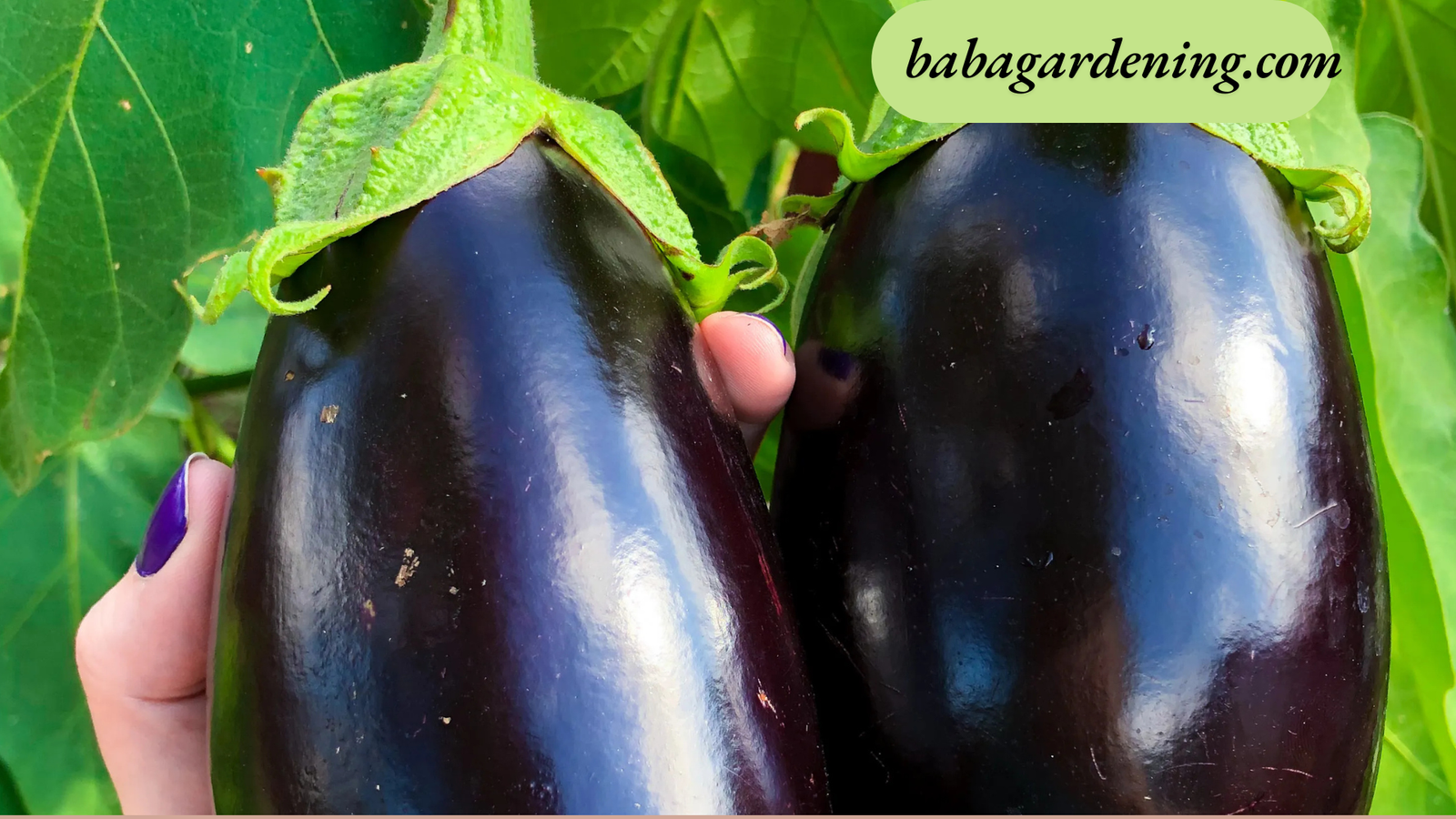
Once established, eggplants reward you with abundant harvests, provided they receive normal watering, mulching, and safety from pests and diseases. Supporting plants with stakes and pruning extra foliage enhances airflow and prevents damage from heavy fruit.
With the right technique, homegrown eggplants provide superior flavor, freshness, and nutrition as compared to store-offered options. Whether you’re a seasoned gardener or an amateur, following those step-through-step suggestions will assist you enjoy an efficient and wholesome eggplant crop season after season. Gardening is a journey, and every harvest brings new studying reviews, making the attempt profitable.
FAQs
1. How lengthy does it take for eggplant seeds to germinate?
Eggplant seeds generally take 7–14 days to germinate when stored in heated soil (75–eighty five° F or 24–29°C). Using a warmness mat can speed up the method.
2. When must I transplant eggplant seedlings into the garden?
Transplant seedlings after they have at least sets of real leaves and outdoor temperatures are continuously above 60°F (sixteen °C). Hardening off the plant life for a week before transplanting facilitates them to adjust.
3. How regularly must I water eggplant flowers?
Eggplants want regular moisture, so water deeply some instances a week, depending on rainfall and temperature. Mulching across the plant life permits maintaining moisture and forestall weeds.



